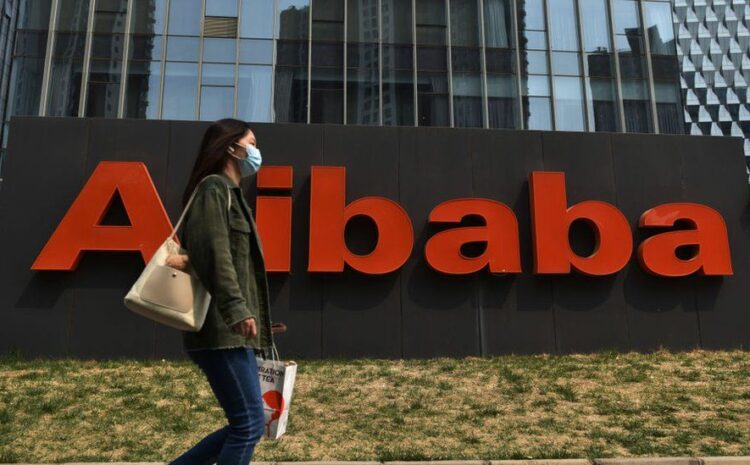
IMAGE COPYRIGHT GETTY IMAGES
Regulators slapped a $2.8bn fine after a probe determined that it had abused its market position for years.
The fine amounts to about 4% of the company’s 2019 domestic revenue.
Alibaba Group’s executive vice chairman Joe Tsai indicated that regulators have taken an interest in platforms like Alibaba as they grow in importance.
“We’re happy to get the matter behind us, but the tendency is that regulators will be keen to look at some of the areas where you might have unfair competition,” he told an investor call on Monday.
The company added that it was not aware of any further anti-monopoly investigations by Chinese regulators, though it signalled that Alibaba and its competitors would remain under review in China over mergers and acquisitions.
The main issue for regulators was that Alibaba restricted merchants from doing business or running promotions on rival platforms.
The company said it would introduce measures to lower entry barriers and business costs faced by merchants on e-commerce platforms.
“With this penalty decision we’ve received good guidance on some of the specific issues under the anti-monopoly law,” Mr Tsai said.
The group does not expect any material impact on its business from the change of exclusivity arrangements imposed by regulators.


The message from Alibaba today in its investor call was: we may be the biggest and the first Chinese tech firm to attract regulators’ attention – but we are by no means the last.
Alibaba executives sought to reassure investors that they are playing ball with the regulators. They’re going to make it cheaper for businesses to sell on their platform, and not force them to pick and choose between platforms – a practice seen by some in the industry as a case of “it’s my way or the highway”.
So far, Alibaba says, the discussions with regulators have been amicable, and the statement from the firm on accepting the penalty is markedly contrite.
It may also be heaving a sigh of relief. The 4% of 2019 revenue penalty is a record fine, but for Alibaba, which has a huge war chest, it’s a drop in the ocean.
But there will be more oversight and scrutiny of it and other firms.
The e-commerce giant indicated that while for now Alibaba is in the clear in terms of future investigations, the same could not be said for other firms in this sector.
Chinese tech firms are a powerful force in the country, and Beijing is keen to regulate them. Alibaba’s experience is a sign of more of the same to come.

The penalty is the latest in a chain of events targeting the company that kicked off last October, after its co-founder Jack Ma criticised regulators, suggesting they were stifling innovation.
Shortly after the speech, Chinese regulators scuppered the share market launch of Ant Group, which is Alibaba’s sister company and China’s biggest electronic payments provider.
However, some commentators noted that regulators had legitimate concerns about Ant Group’s consumer finance arm.
Ant Group was expected to be last year’s biggest share market launch on the Hong Kong exchange.
But Alibaba isn’t the only Chinese company to come under scrutiny by China’s increasingly assertive regulators.
Last month, China’s State Administration for Market Regulation (SAMR) said it had fined 12 companies over 10 deals that violated anti-monopoly rules.
The companies included Tencent, Baidu and Didi Chuxing – which are among China’s largest tech companies.
